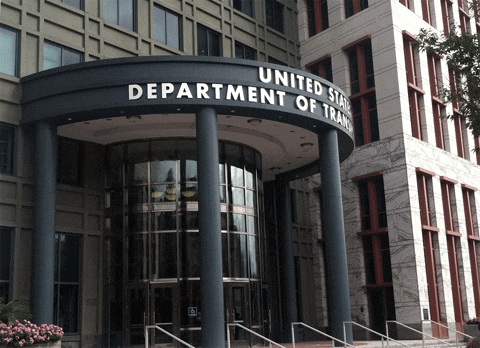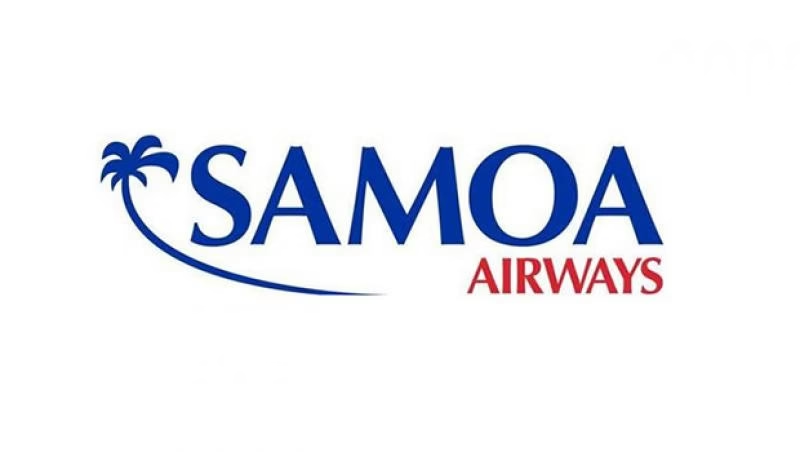DOT rules have become anti-consumer rules to protect airlines
The Transport Department (DOT) and Federal Aviation Administration (FAA) have made rules in the years that were designed to help the struggling airline industry. Keeping the industry operated is a part of keeping our economy healthy. However, today, with dramatic consolidation in the industry, there were once measures to help the industry turn into anti-consumer rules and anti-market weapons.
The dot/FAA rules are protecting their oligopolic controls of the airlines and international systems, rather than out for the interests of the American public. It is time to re -examine the impact on Congress, Dot and FAA competition. This airline competition causes damage to the DOT/FAA grant of Antitust Immunity, implementing slot controls and their approval of code-sharing.
The family sitting together is now a land law, but the dot is not implementing it after about 10 years.
For the last 10 years, a law passed by the Congress and a law signed by the President is effective, but has not been added to the Code of Federal Rules. Therefore, families are still paying hundreds of additional dollars in fees and increasing air fares to be able to sit with their children. To implement this law, the refusal of the dot makes the anti-defect-consumer rules.
The law states that 13 years and below children should be allowed to sit with their families without any extra cost. However, Dot has not even taken the first step in writing the rules that will implement this law. The American families of four can pay around $ 1,000 per round-trip to guarantee that they can sit together with their toddlers. This is clearly an autocratic of the responsibility of DOT to take care of the American public and follow the land laws.
The DOT and FAA rules assist the veterans of the consolidated airline industry.
The following types of activities can only occur if the airlines no longer compete with each other due to the dot antittest immunity (ATI) actions and other dot/FAA functions.
• Samparkan has given more control to large airlines at important airports and damaged the airline competition.
Large airlines were strengthened through consolidation and ATI gained control over large airports. With its corporate fingers, the take-off and landing slots and gates became more difficult. Slot control during epidemic has been waived by dot and FAA. And, the gate hoarding prevents new entry from being able to fly and compete with large airports. For example, some airlines have waited for more than eight years for gates at major airports to start service.
Today, Delta Air Lines control more than 60 percent of the slots in Lagardia. Through these slots (for which they did not pay anything for most parts) they can prevent the expansion of competitors. Internationally, Delta’s code-sharing system with Aromexico (a skittum partner) is expanding the competitors that want to fly from Mexico City to USA.
• Airline merger approval means problems for trapped passengers.
It is ever surprising how airlines used to move passengers from one carrier to another when there were weather or mechanical problems? He had interline agreements between the airlines to handle the trapped passengers. Airlines will help each other – and therefore, by taking care of passengers during passengers – disruption.
Today, very few airlines have contracted arrangements to help fellow carriers and passengers in terms of “irregular operations”. Airlines once made “irregular operation” arrangements with Frontier Airlines, Spirit Airlines and others. These were canceled when the merger between American Airlines and USAARway was approved. This constructive collusion is another way that large integrated airlines damage their economic power and damage passenger service.
• The ban on distribution of air fare damages the airline competition.
In the past, the advertisement for the availability of flights was part of the life of the airline industry. Today, with the morning of consolidation and capacity control, airlines no longer need to be actually competitive. There are some flights compared to demand. In addition, since many airports have only a limited option of airports, major airlines are not worried about receiving their schedule and airfare to the public.
Delta is a poster child for this anti -competitive behavior. He has banned his aerial fare publication on several small search engines. It is impossible to compare the shop when consumers cannot see air fares in every search for flights. This is the main objective of the airlines – prevent comparison and throw a wrench into the free market.
The new basic economy is more difficult to understand consumers on air fare than ever before. Supporting fees such as goods fees and seat reservation fees are not included in basic aircraft fare and never appear in the purchase process. Consumers have to pay them after booking their flights. In addition, to add an insult to injury, the Airlines basic economy allegedly banned the ban on air fares.
Are ATIs, code-sharing, and slot hoardings, with dot decisions, competition and everyday airline to harm passengers? Yes.
• American, delta, and United tried to help their coalition partners and interact on the “open skyse” treaties to help their coalition partners and reach the fastest growing world markets in Africa and southern Asia, which are more difficult for American corporations and inhabitants.
• Air fare remained high despite dramatic drop period in aviation fuel prices. And, today, airlines are already singing blues of growing jet fuel costs. Now consumers are being faced. They know that there are very few relationships between the cost of fuel and air fare.
• Stuck trapped passengers take the vacant seats to their destinations during mechanical and weather delays as the airlines refuse to work together for the benefit of the trapped passengers.
Code-sharing and international airline alliances are no longer working for consumers.
Once, when the airlines were struggling, there were more than a dozen airlines, code-shares, and alliances that looked somewhat appropriate, although they were also controversial in those days. Instead of flying to passengers, they have gone out to eliminate the airline competition.
Many international airline coalitions do not provide boarding passes unless international tickets are all on a ticket. This eliminates the ability to change the nexus on a trip. Some international airline coalitions do not offer goods transfer for passengers to transform goods from one international alliance to another. The year before the construction of airline alliances was far more flexible for long distance flights.
Today, the international consolidation of economic power in the hands of three top airline alliances is dangerous for the airline competition. It damages the aviation -free market. This slows down the development of competition at the domestic and international level. Government investigators and regulators should re-examine the premises of such arrangements-Code-sharing, airline alliance, and antittest immunity grants.
The American public needs a shot of the re -injected airline competition in the aviation market. The new competition in the Atlantic shows how much shopping purchases work in comparison for medium air fare and create better customer service for American flyers.
US airline consumers also require a dot and FAA that focuses on their needs and rights. DOT should not focus on maintaining policies that only serve the commercial purposes of the airlines.
Also read:
PFC – How the airports are funded by passengers instead of local businesses
Trump dot ax airline passenger flight disintegration compensation
Charlie Leoha is the chairman of Travelers United. He has been working in Washington, DC, with the stakeholders of the industry on Congress, Transport Department and travel issues over the last 14 years. He was the first consumer representative of the Advisory Committee for Aviation Conservative Safety appointed by the Transport Secretary from 2012 to 2018.



